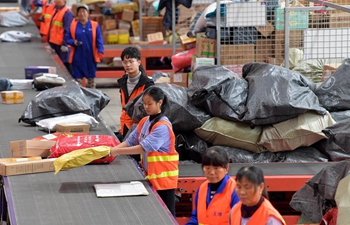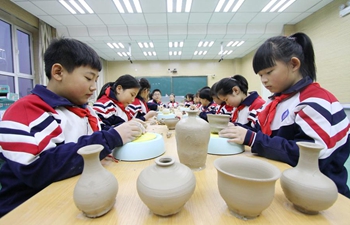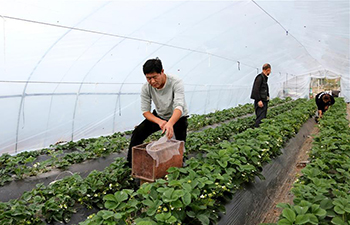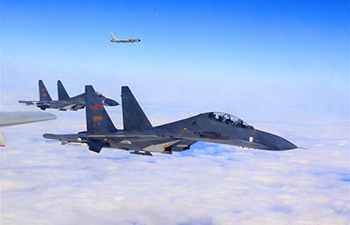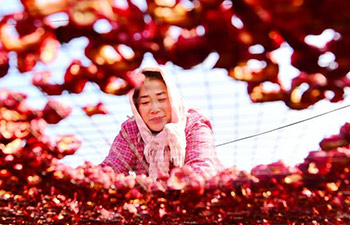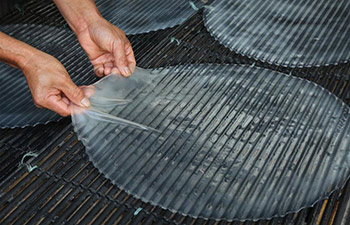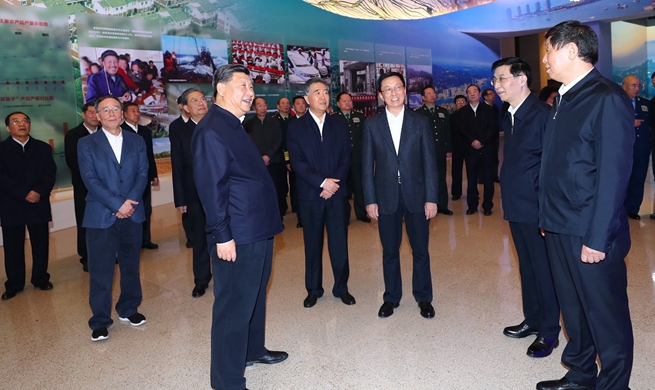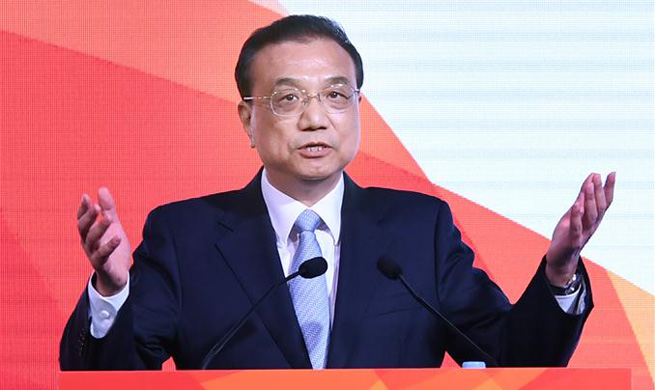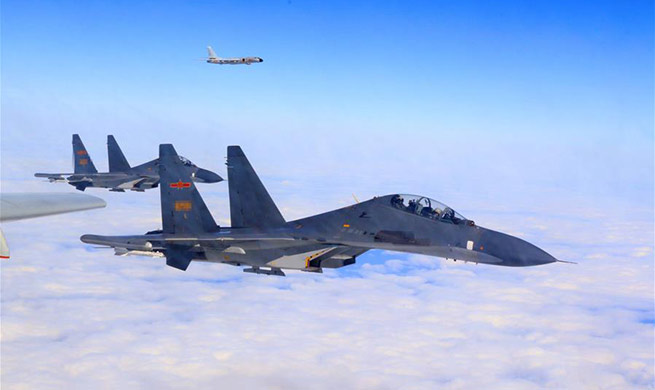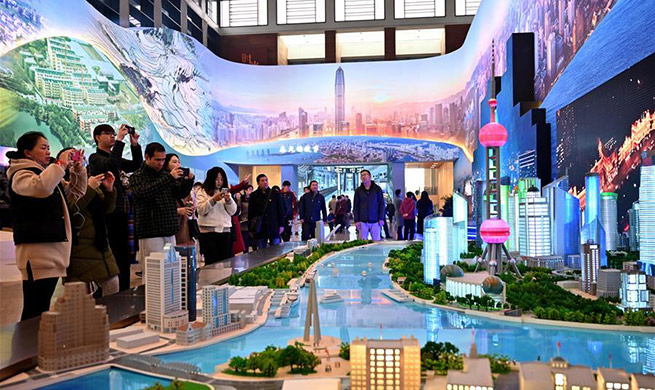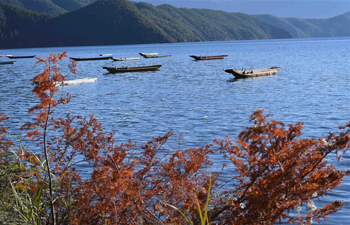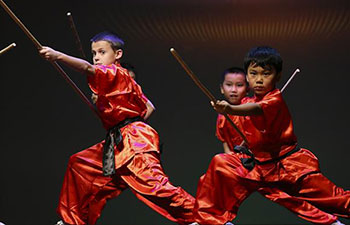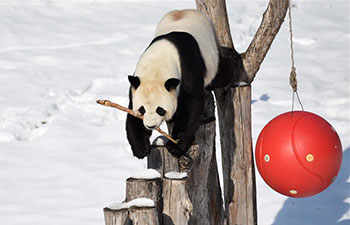by Lu Duobao and Gale Julius
JUBA, Nov. 14 (Xinhua) -- After nearly five years of civil unrest, South Sudan seems to have finally made some progress in peace with a revitalized peace agreement signed in September.
Experts say although the country's road to peace and stability still remains bumpy, the warring party's recent display of positive attitude towards the revitalized peace agreement provides renewed hope for peace in South Sudan.
Thousands of South Sudanese on Oct. 31 gathered in the capital Juba to celebrate the new peace deal amid high hopes of an end to the brutal civil war.
Among the people who attracted huge attention during the peace event was Riek Machar, former deputy president-turned rebel leader who returned to South Sudan for the first time in two years after fleeing into exile following the collapse of the 2015 peace agreement.
"I came only to confirm to people that I am for peace. The past is gone. We have opened a new chapter for peace and unity," Machar told the cheering crowd in Juba.
Following the pronouncement by his bitter rival, South Sudanese President Salva Kiir declared an end to war during the peace ceremony. Kiir also apologized to his people for the "immense suffering" caused by the war.
James Okuk, senior research fellow at the Center for Strategic Policy Studies, a Juba-based think tank, said the presence of opposition groups at the peace celebration indicates their seriousness to the peace, adding that it will help boost trust between the parties to the agreement and in turn reduce hostilities.
"For Riek to come to Juba without guns, it shows that the parties are committed to the peace agreement, and that is the significance that is changing the attitudes of the people, the government and the international community," said Okuk.
"Machar's presence at the peace day celebration will show confidence for his supporters. It was a good sign," said Jacob Dut Chol, lecturer of political science at the University of Juba.
Chol expressed optimism that the latest peace agreement will succeed since it brought in many armed groups who willingly signed it without reservations compared to the failed 2015 deal which only embodied a few rebel factions.
"The 2015 peace deal was under pressure for both sides to sign, but this time is different. The regional environment is good. Uganda, Ethiopia and other IGAD countries were taking the lead in this peace deal. And people are tired of wars. They want to move on," Chol added.
Viviana Nyachan, a South Sudanese singer, has a popular peace-themed song named "look at me", which says "don't kill the woman, don't kill the kids, don't kill the neighbour, don't kill the fisherman, don't kill farmers, and don't kill hunters".
"I used to cry when I listened to the song. "I want it to end, this suffering, this killing, this everything," said Nyachan.
South Sudan gained independence from Sudan in July 2011, but barely two years later, the young nation descended into civil war in December 2013, which has killed tens of thousands of people and displaced an estimated four million people, both internally and externally, according to the United Nations.
A peace deal signed in August 2015 collapsed following renewed violence in the capital, Juba in July 2016.
In September 2018, a revitalized peace agreement was signed by South Sudan's President Salva Kiir, main rebel leader Riek Machar and several armed groups in the Ethiopian capital Addis Ababa.
Under the new peace deal, opposition leader Riek Machar will once again be reinstated as Kiir's deputy.
Bangasi Joseph Bakasoro, opposition politician and head of the opposition group National Movement for Change, said time has come to end war and give peace a chance in South Sudan.
"Those who doubt too much, be patient, wait and see if it will succeed. For me, I need it to succeed," Bakasoro told Xinhua.
Despite the recent gains and growing optimism about the country's peace process, analysts are also warning that it's yet too early to celebrate because so many issues of concern remain unresolved.
Chol said the issue of integration of militia fighters into the national army and economic reforms remain a big challenge that must be addressed by the power-sharing government.
"If peace is restored, the government needs to build the communities, reform the army, and provide livelihood for the people," Chol said.
Civil society activist Jame David Kolok said that for the current peace process to be sustainable, priority must be put to address issues of representation, reforms and inclusion for disgruntled groups left outside the peace agreement.
Kolok said rebel groups opposed to the deal like the National Salvation Front of Thomas Cirilo Swaka still poses a huge threat to peace in South Sudan, adding that the parties must work extra hard to convince such groups to join the pact.
"As civil society, we need to pressure the leaders because peace agreement is not just a document, but it has to be translated into action in terms of seeing these leaders taking lead and going out across villages in South Sudan and tell citizens that they are committed to the peace process." he added.
